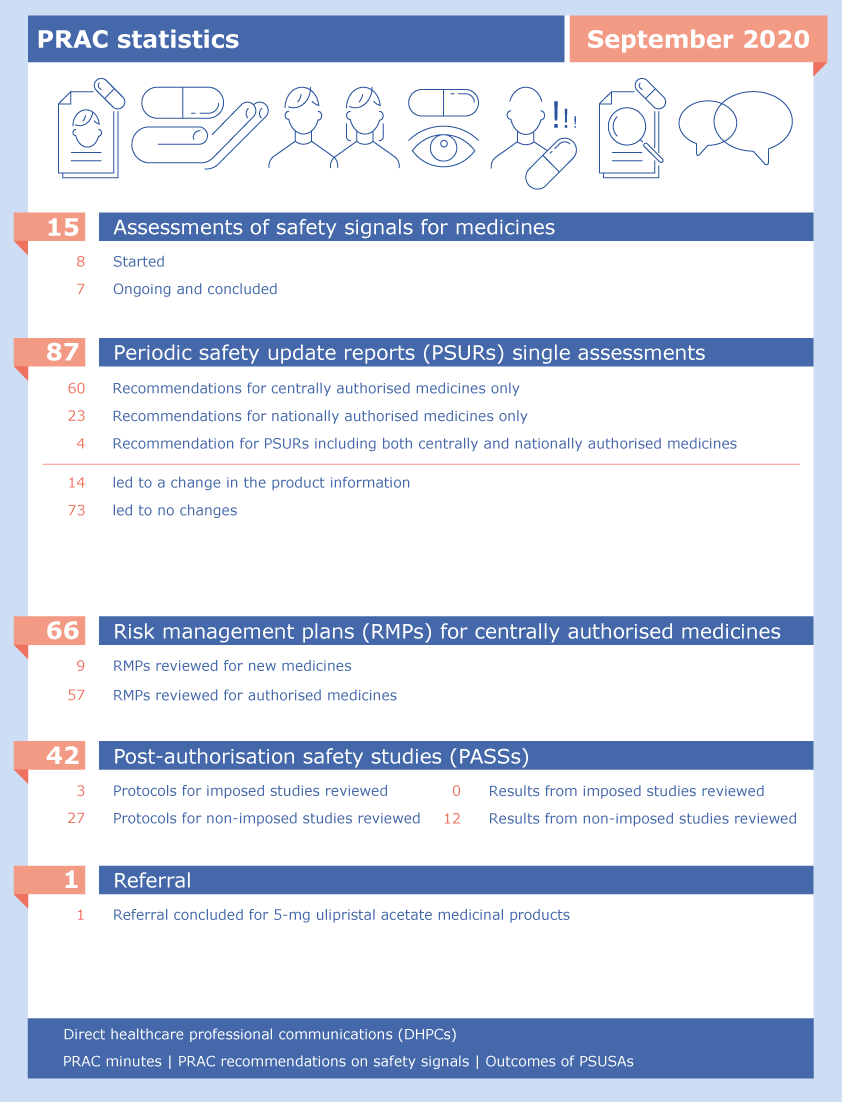Meeting highlights from the Pharmacovigilance Risk Assessment Committee (PRAC) 31 August - 3 September 2020
NewsHumanPharmacovigilanceReferrals
EMA’s safety committee (PRAC) recommended the revocation of the marketing authorisations of 5-mg ulipristal acetate (Esmya and generic medicines) used for the treatment of symptoms of uterine fibroids, as a review carried out by the committee confirmed liver injury, including the need for liver transplantation, caused by these medicines.
The PRAC considered all the available evidence in its review, including reported cases of serious liver injury. Patient and healthcare professional representatives, including experts in gynaecology, were also consulted. Since it was not possible to identify which patients were most at risk or measures that could reduce the risk, the PRAC concluded that the risks of these medicines outweighed their benefits and that they should not be marketed in the EU.
This recommendation does not affect the single-dose ulipristal acetate emergency contraceptive (ellaOne and other trade names) and there is no concern about liver injury with these medicines.
More information is available below.
Article-31 referral: Ulipristal acetate 5mg medicinal products

Glossary:
|
Procedure |
Status |
Update |
|---|---|---|
|
Article-31 referral: Ifosfamide solutions |
Under evaluation | PRAC continued its assessment. |